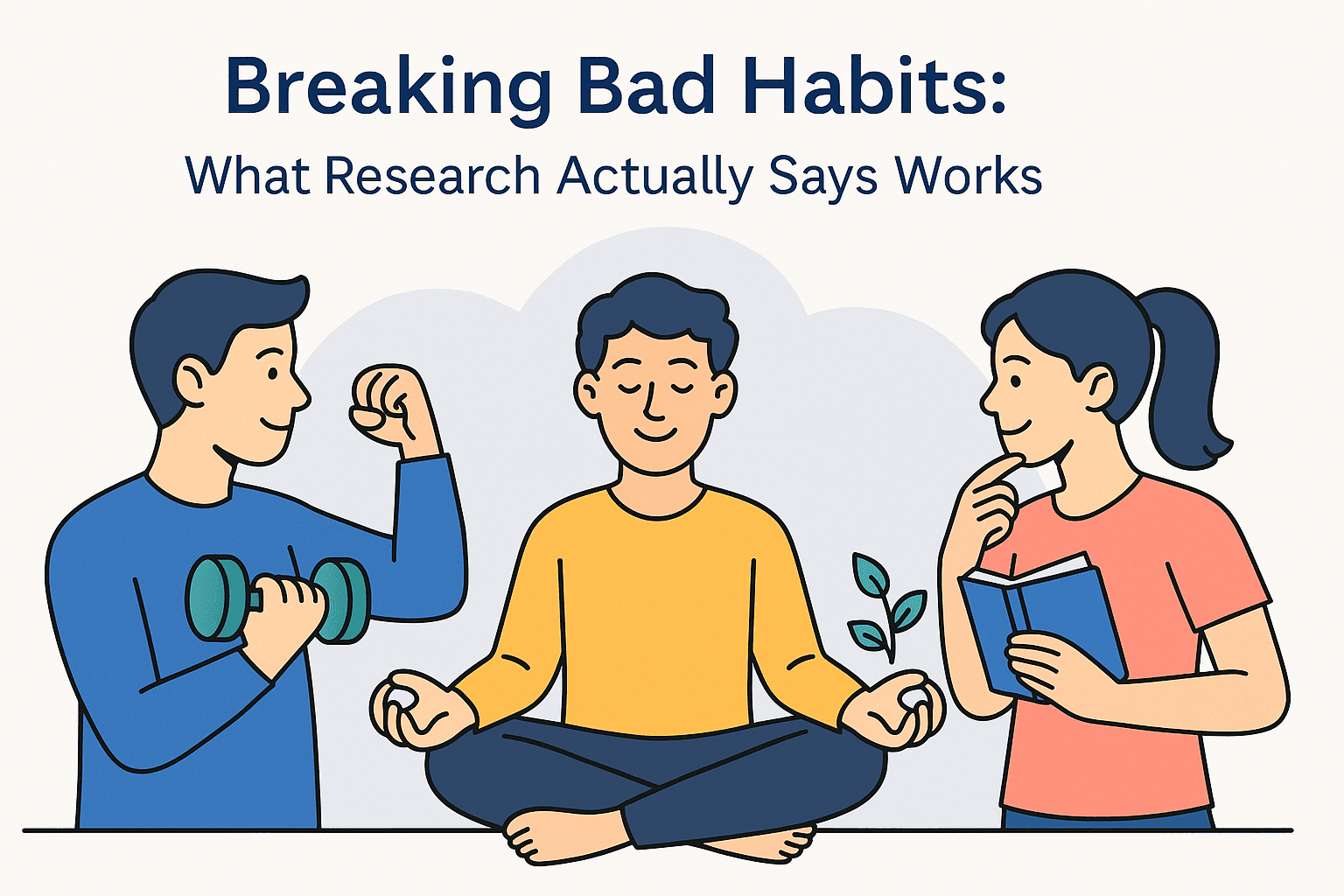
Breaking Bad Habits for Good

TL;DR
Breaking bad habits isn't just about willpower. Effective strategies include identifying triggers, substituting unhealthy behaviors with positive ones, and altering your environment to disrupt the habit loop.
Why Are Bad Habits So Hard to Break?
Habits, whether good or bad, become ingrained through repetition. Over time, they form strong neural pathways in the brain, making them automatic responses to specific cues. This automation is why breaking bad habits can be challenging—they're literally wired into our brains.
The Habit Loop: Cue → Behavior → Reward
Understanding the structure of a habit is crucial. Each habit consists of:
- Cue: A trigger that initiates the behavior.
- Behavior: The action you take.
- Reward: The benefit you gain from the behavior.
For instance, feeling stressed (cue) might lead you to smoke a cigarette (behavior) to experience relaxation (reward). To break a habit, it's essential to disrupt this loop.
Strategies to Break Bad Habits
-
Identify Your Triggers
Pay attention to the cues that prompt your bad habit. Is it a specific time of day, emotional state, or social situation? Recognizing these triggers is the first step toward change.
-
Replace the Bad Habit with a Good One
Simply stopping a bad habit isn't always effective. Instead, replace it with a positive behavior that offers a similar reward. For example, if you tend to snack when bored, consider engaging in a hobby or physical activity instead.
-
Change Your Environment
Modify your surroundings to make the bad habit less accessible. If you want to reduce screen time before bed, keep your phone in another room. Altering your environment can reduce temptations and make it easier to adopt new behaviors.
-
Practice Mindfulness
Being mindful helps you become aware of your habits and the urges that drive them. This awareness can provide the space needed to choose a different response. Mindfulness techniques have been shown to assist in breaking various habits, including smoking and overeating.
-
Be Patient and Persistent
Change doesn't happen overnight. Research indicates that forming new habits can take anywhere from 18 to 254 days, with an average of 66 days. Consistency is key, so be patient with yourself during the process.